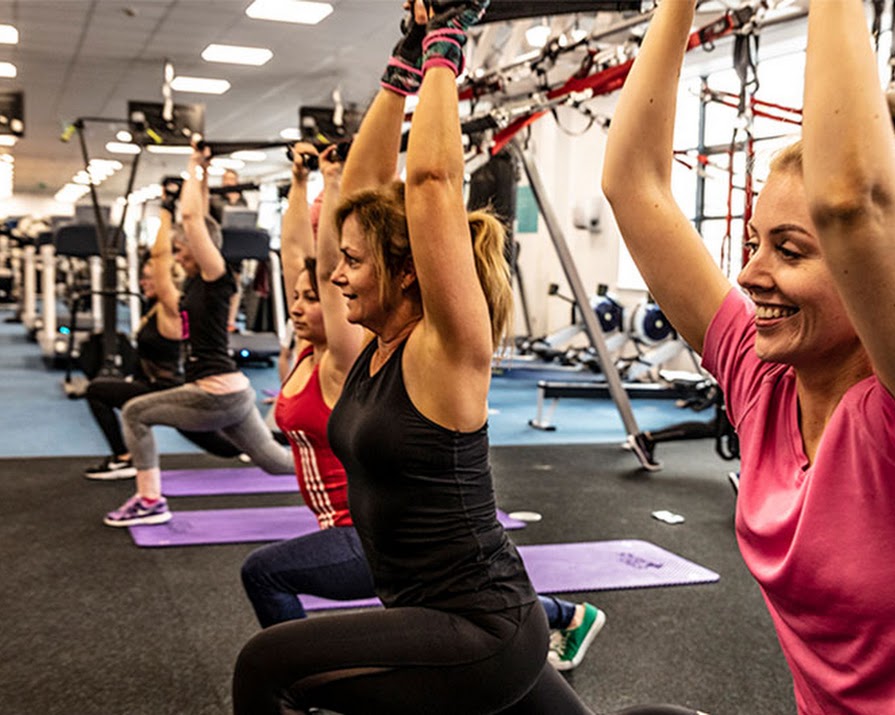Sponsored
Do you even lift bro? Why strength training is not just for the boys
Sponsored By

By Eva Hall
25th Feb 2020
25th Feb 2020
Sponsored By

Everything you wanted to know about lifting weights but were too afraid to ask.
We’ve all heard the horror stories: lifting heavy weights makes women bulky; weights are bad for your joints; if you build up enough muscle, that muscle will turn straight to fat once you stop lifting.
But did you know that that’s all a load of nonsense?
Strength training is about – shocker – improving strength. And it’s especially beneficial for new mums looking to regain fitness postpartum, or even make a new friend.
But don’t just take our word for it. The health and fitness experts at Gym Plus have answered everything there is to know about strength training, from physical wellness to mental agility.

Men and women of all ages and abilities are catered for at eight Gym Plus clubs around the country. Photo: Gym Plus
Anthony Murphy, a personal trainer at Gym Plus in Ballsbridge in Dublin:
Strength training
Why do more men take up strength training than women?
There is a kind of urban myth that only guys lift but it’s just not true, certainly not any more. Women are generally aware that they need to combine strength and cardio work to get the best results, whereas a proportion of men will leave out the cardio bit. This may serve to enhance the impression that more men do strength training than women. Similarly, men tend to prefer traditional strength training, working alone with free weights whereas women are more open to a variety of training techniques and equipment, for example strength classes and resistance bands. Combining strength training with high-intensity cardio classes like Boxfit, Functional Fitness, Keiser Spin and Bootcamps keep the heart and lungs strong and healthy.
Will strength training bulk you up?
Not at all. Strength training will, as the name implies, improve your strength. Frequent strength training with a high-calorie intake on a daily basis can increase lean muscle mass, but you have to train very specifically to achieve this. There’s also a lot to be said for replacing body fat with lean muscle, as it makes it easier to keep excess weight off, boosts your metabolism and strength, and can help achieve the toned body look many women desire.
Who should try strength training?
Everyone can benefit from strength training. The key is to find the right starting point for your age and your current experience level. You don’t need to push yourself to lift the heaviest possible weight, which you may have heard referred to as the “1 rep max” to improve strength. Some typical starting points are much less scary than this; using a low weight and medium to high repetitions will improve strength for a beginner. The best thing to do is to engage with a trainer at a gym who will guide you to what a good weight to start is for you and most importantly teach you the correct technique to avoid injury.
How often should you be exercising?
If you work out for a couple of sessions a week you’ll definitely see great results quickly, but don’t worry if that’s not achievable, every session is a bonus and takes you closer to your goals. A couple of times a month is much better than nothing at all. Classes, swimming, working out alone or training for and competing in sports all count towards your total workout time. In addition to formal workouts, try to get some sort of physical activity every day. This can include things like gardening, walking, cycling to work, or getting out of the office at lunch for some fresh air. Give yourself credit for everything you do and don’t stress about what you can’t do, stay focused on what’s possible for you and what makes you feel good.

There is a myth that lifting weights will bulk you, says Gym Plus personal trainer Anthony Murphy. Photo: Gym Plus
Diet
Is there a strict diet that goes along with this exercise if you want to see real results?
You don’t need to go mad with diet to see results. The key with nutrition is to keep it balanced. Every meal you eat should include quality protein (lean meat, fish or legumes for vegetarians and vegans), carbs (including a variety of vegetables) and good fats, for example avocado or nuts. You need to eat for your goal. If you’re losing weight you need to eat less calories overall than your body burns. If you’re looking to increase lean muscle mass you’ll need to eat slightly more than your typical allowance. You need to tune in to your body and understand its precise energy requirements. This is made easier if you use something like our Tanita Body Composition monitor which will give you an accurate picture of where you are now and allow you to track how both your calorie requirements and body composition, for example fat and muscle mass, are changing over time.
Are supplements necessary when lifting?
Generally supplements aren’t required. Some people choose to use them if they struggle to eat enough protein. But, with a balanced diet you shouldn’t need them unless you’re looking to achieve something very specific, for example to become a professional bodybuilder.
Beginners
If you are just starting out on your fitness journey, can you get one-on-one sessions with PTs in Gym Plus?
We offer one-to-one fitness reviews at all Gym Plus clubs. These allow you to talk to an experienced trainer about your goals and get their expert advice on a fitness plan and nutrition approach to achieve them. It’s important to do these reviews regularly, not just when you start out. This will help you continue to see progress as you get fitter, keep you motivated and provide variety in your routine to keep things interesting. If you enjoy working out with others, we have a huge variety of classes on offer as part of the membership, all at different times during the day. So you can fit in a yoga class before work, a spin class at lunch time or blast away the stresses of the day with Boxercise in the evening.
What’s your advice for a complete novice joining your gym for the first time?
Don’t be scared! Everyone you see in the gym was once a nervous newbie, no matter how they look now. Join a gym with a friendly community feel that will offer you lots of support and opportunity to meet other members. Lean on the professional trainers in the club for one-to-one help and take classes so you can learn the right way to do things. Classes can increase your knowledge of exercise, understanding correct exercise movements and build up your experience. Don’t worry that you’ll be the only one who makes a mistake, everyone does it and the trainers are there to help, even the most seasoned of us occasionally move left when we should have gone right!

New mums should consult their doctor before they start working out again advise Gym Plus trainer. Photo Gym Plus
Motivation
Sandra Dunne, managing director with Gym Plus who has over 25 successful years in the fitness industry:
Why is strength training encouraged for new mums?
Strength training is a great way to repair some of the changes your body goes through in carrying and giving birth to your baby, as well as giving you new strength to lift and carry them as they grow. It’s important not to rush into it. Give yourself at least six weeks after birth and double check with your health professional that you’re ready to return to exercise before you start. As your abdominals and pelvic floor will have been significantly weakened by having a baby, strength training needs to be taken gently and with good technique so make sure you’re getting professional advice on what exercises to do and how. Done well, you’ll soon be enjoying a body that feels like its old self – or better.
What are the key areas strength training targets?
You can use strength training to target any area of your body that you’d like to see looking and performing better. Some of the most useful areas are strengthening your core to look after your back, your legs and glutes to power upstairs and your upper body to make lifting heavier items a piece of cake.
Isn’t strength training repetitive? Can it get boring?
When people think about strength training they typically think of old school pumping iron but there are loads of other ways you can do it to keep things interesting and even avoid it altogether if dumbbells make you nervous. Body weight exercises are an amazing way to start strength training as they require no equipment, and you can find fun training tools like weight machines, kettlebells, slam balls and resistance bands in well equipped gyms. It’s actually advised to try different methods as it’ll keep your body challenged with different types of move and lead to better overall strength.
Are there different exercises for men and women or is based on your ability at the beginning?
Men and women can do exactly the same exercises, there’s no gender divide in strength training! As mentioned previously, where you start depends on your age, experience and ability at the start of the programme.
As well as the obvious physical benefits, what are some other benefits of joining a class or a gym?
Exercise is about much more than just the benefits to your physical body. It’ll make you fitter mentally too. The combination of your workout and the social side of using a gym will see you happier, less stressed and more mentally resilient. Seeing your progress over time and making new friends mean it can be loads of fun too.
For more information on what classes will suit you Gym Plus at the eight Gym Plus clubs around Ireland, visit gymplus.ie.























